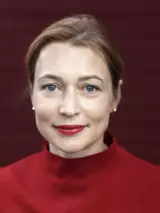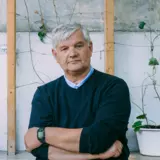Democracy at the Crossroads: Civil Society, Media Literacy and Resilience in Europe
Nordic Hotel Forum, conference room SiriusWatch the XXVI Open Society Forum here (in English)
Over the past two decades, the fundamental values upheld by liberal democracy in Europe have faced significant threats, largely due to scientific and technological advancements. This has led to a fundamental shift in how our society perceives truth, particularly evident in the proliferation of disinformation. The decline of traditional media and the rise of social media have played a pivotal role in this transformation. The Covid-19 pandemic has further exacerbated the issue, giving rise to an "infodemic." Additionally, the Russian aggression in Ukraine has fueled a disinformation campaign, manipulating facts, undermining common sense, and exploiting societal divisions to impede the European response. Central and Eastern European countries face specific challenges in this context, with still vulnerable institutions, limited media freedom, and rule of law concerns, making them particularly susceptible to Russian disinformation efforts.
The XXVI Open Society Forum delved into the nature and extent of the problems associated with disinformation, while also highlighting the specific transnational and national dynamics at play. The Forum explored potential solutions, approaches, and tools required to effectively counter disinformation. Emphasis was placed on the crucial role of civil society, as well as the delicate balance between combating malicious disinformation and upholding free speech within a democratic framework.
Full photo gallery of the forum is available here and listen to forum´s podcast.
Watch the forum in Estonian here.
Additional information and media inquiries: Jete Aljasmäe, jete@oef.org.ee
The XXVI Open Society Forum is funded by the Active Citizens Fund and the European Union in the framework of the project “CoviDemocracy in the Baltics”.
Agenda
The agenda of the Forum:
12:00 – 13:00 Registration and welcome coffee
13:00 – 13:30 Opening of the Forum:
- Welcome address by Mall Hellam, Executive Director of the Open Estonia Foundation;
- Introduction "View from EU" by Vivian Loonela, Head of European Commission Representation in Estonia;
- Keynote speech "When Did We End Up in War in the Infosphere?" by H.E. Kaimo Kuusk, Ambassador of Estonia to Lithuania, Ambassador to Ukraine 2019-2023.
13:30 – 15:00 First panel discussion "State of Play: Fake News, Disinformation and the War Against Ukraine" (in English, simultaneous translation into Estonian will be provided)
The first panel will engage in a comprehensive discussion on the mechanics and objectives of disinformation, exploring its spread and operation. Topics of focus will include the emergence of the new disinformation ecosystem, the influencers behind it, and their impact on public opinion, with a particular emphasis on the Central and Eastern European (CEE) region in the aftermath of Russia's war against Ukraine. The panel will also examine the reach, goals, and societal implications of disinformation. The panel will provide an overview of the current situation of fake news and disinformation in CEE, as well as in the wider European and global contexts during the ongoing conflict. The impact of disinformation on democracy and civil society activism will also be discussed.
Speakers: Nikola Tulechki, Co-Founder and Data Scientist, Data for Good, Bulgaria; Maciej Sopyło, Media Literacy, Human Rights and Communication SkillsTrainer, Poland; Inga Springe, Co-Founder and Investigative Journalist at the Baltic Center for Investigative Journalism Re:Baltica, Latvia.
Moderator: Raul Rebane, Communication Expert, Estonia
15:00 – 15:30 Coffee break
15:30 – 17:00 Second panel discussion “Disinformation and Resilience in Estonia” (in Estonian)
The second panel will address the critical issue of disinformation in Estonia and explore effective practices to tackle it. More specifically, the focus will be on the role of civil society and the media in countering disinformation and in increasing the resilience of citizens and institutions to information attacks. The panel will discuss both existing best practices as well as innovative approaches that have medium to long term results, such as fact-checking initiatives, deepfake detection and civic education, that contribute to increased media literacy and help to protect and inoculate democracy.
Speakers: Holger Roonemaa, Head of the Investigative and Fact-Checking Desk, Delfi, Estonia; Ilmar Raag, Strategic Communication Expert.
Moderator: Margo Loor, Trainer and Moderator at Speaksmart.
17:00 – 18:00 Reception
Speakers

Nikola Tulechki
Knowledge Engineer at Ontotext and Data Consultant at Factcheck.bg
Nikola is a knowledge engineer at a semantic technology company Ontotext and a data consultant at a Bulgarian fact-checking platform Factcheck.bg. He is also one of the founders of the Data for Good Association, which provides know-how and services related to data processing and analysis to the civil sector.
Nikola holds a PhD from University of Toulouse in applications of automatic language processing of aviation incident reports. Nikola is interested in related open data, both from a structural point of view and from the perspective of their social significance. He also teaches Semantic Technologies at Sofia University and the New Bulgarian University.

Inga Spriņģe
Journalist, Co-Founder of the Baltic Investigative Center Re:Baltica
Inga Spriņģe is an award-winning investigative journalist, and one of the founders of the Baltic Investigative Center Re:Baltica. Her career started in 1998 in Latvian Television, after which she started working as an investigative journalist in the leading Latvian daily Diena. In 2010-2011, Spriņģe became a Fulbright/Humphrey scholar and spent a year at the University of Maryland. Inga has worked as an intern at the Washington Post and at the biggest US non-profit investigative journalism organization, The Center for Public Integrity. After returning to Latvia, she established Re:Baltica and introduced the topic of social inequality in Latvian politics and public discourse. For this work, she received the Best Investigative Journalism award from the Latvian Journalism Association. In 2014 Springe was named one of the "outstanding challengers from Central and Eastern Europe" in the project NewEurope 100 supported by Google and Financial Times. Spriņģe is a member of the International Consortium of Investigative Journalists and Organized Crime and Corruption Reporting Project (OCCRP).
Her topics cover propaganda, disinformation and social justice. She was also part of the team of the investigative documentary Masterplan (2016) uncovering the Kremlin's soft power and propaganda tactics in the Baltics.

Margo Loor
Moderator and trainer at Speaksmart
In order to become a successful moderator, Margo has developed and refined his moderation skills for over 20 years. Since 1998, he has been conducting argumentative persuasion, debating and decision-making trainings for adults and leading discussions at seminars and conferences. Margo has advised the launch and development of debate programs in several foreign countries (Myanmar, Laos, Cambodia, Nepal) and has worked as an educator at the international level (lectures at Chiang Mai University, Thailand, Istanbul).In addition to his work as a moderator and trainer, Margo is a co-founder and a technology evangelist at CitizenOS, an Estonian NGO, which develops e-democracy.

Ilmar Raag
Strategic Communication Expert
Ilmar Raag is a well-known strategic communications expert, journalist and filmmaker. He has worked as director of Estonian Television and as a strategic communications adviser in the Government Communications Office, where he was involved in developing crisis communications capacity. Ilmar has also participated in the Defence Forces mission to Mali as part of the United Nations force and is a reserve officer and member of the Defence League. Raag has published numerous articles and opinion pieces on information warfare and propaganda.

Holger Roonemaa
Head of the Investigative and Fact-Checking Desk, Delfi
Holger Roonemaa is one of Estonia's most respected investigative journalists and Head of the Investigative and Fact-Checking Desk at news portal Delfi. Holger has extensively studied and written on topics related to Russian propaganda and disinformation.
His work continues to be among the most awarded stories in Estonia: he received the 2021 and 2022 Bonnier Prize for Investigative Journalism. The stories written by Holger have an international impact and a growing societal significance and he has led several international journalistic projects.
In addition to his work as a journalist, he trains and teaches young people who are interested in investigative journalism. Holger has been actively involved in improving the quality of news and information and is known for his commitment to promoting critical thinking and truthful information.

Raul Rebane
Media and Communication Expert
Raul Rebane is an Estonian media and communication expert with extensive TV and training experience. Raul has been researching the theories of information warfare for over twenty years and is an active speaker in the current war situation, analyzing the topic of war and propaganda from the perspective of media and communication expert and sociologist. He was the first one to introduce the theory of information warfare and psychological operations to the Estonian public. He has written articles and edited books on this topic and presented at numerous conferences.
Raul has also worked in television for twenty years as a reporter and program director, and at several Olympic Games as an information coordinator for the European Broadcasting Union. In addition, Raul is active as a consultant, trainer and lecturer. He participated in consulting on the media strategy for Estonia's accession to the European Union and has trained hundreds of organizations and individuals on media over the years. In 2017, he was chosen as an Estonian opinion leader by Estonian daily Postimees.

Kaimo Kuusk
Ambassador of Estonia to Lithuania
H.E. Kaimo Kuusk is the ambassador of the Republic of Estonia in Lithuania. In 2019-2023 he served as ambassador to Ukraine. Additionally, he has worked at the Estonian Foreign Intelligence Service.

Vivian Loonela
Head of European Commission Representation in Estonia
Ms Vivian Loonela is the Head of the Commission Representation in Estonia since January 2022. Previously she worked as the Commission’s Coordinating Spokesperson for the European Green Deal, leading the Commission’s communication on this priority, in the areas of climate, energy, environment, oceans, transport and cohesion. Before, she was the Foreign Policy and Cybersecurity Advisor in the Cabinet of Andrus Ansip, Vice-President for the Digital Single Market. She has been a member of several EU-U.S. negotiation teams on justice and home affairs, the Secretariat-General’s rule of law and economic governance teams, and contributed to efforts to develop justice and home affairs cooperation with Ukraine and within the Eastern Partnership. Before joining the Commission, she was an Estonian diplomat, including a posting at the Estonian Permanent Representation to NATO. Ms Loonela holds a law degree from the University of Tartu in Estonia.

Maciej Sopylo
Media Literacy, Human Rights, and Communication Skills Trainer
With over fifteen years of extensive training experience and more than 500 hours spent in training rooms, he dedicates his expertise to assisting groups and institutions in utilizing the Internet more safely and comprehensively, fostering more effective and empathetic communication, and promoting the realization of human rights.
He collaborates with various stakeholders, including school communities, non-governmental organizations, public institutions, and businesses. He also serves as the coordinator for the Digital Challenges Group, an informal network of organizations affiliated with the Polish-American Freedom Foundation, focused on devising effective strategies to combat digital threats, particularly disinformation and the consequences of information bubbles.
Additionally, he holds the position of the lead methodologist in the Information Society Development Foundation's project "It's good to know: Fostering information literacy as a core competency for conscious citizenship in a participatory democracy." This project is designed to facilitate dialogue and counteract factors that contribute to disinformation, such as polarization, heightened emotional responses, and declining social trust.


